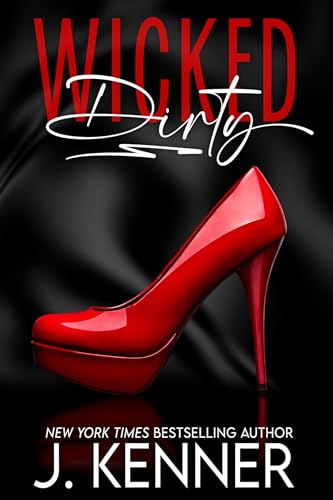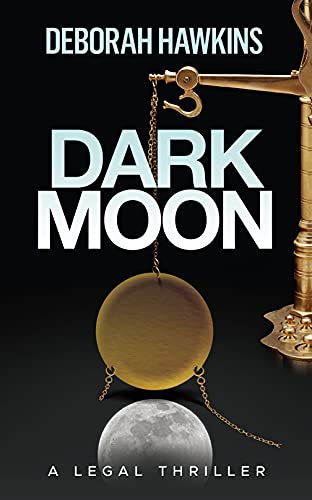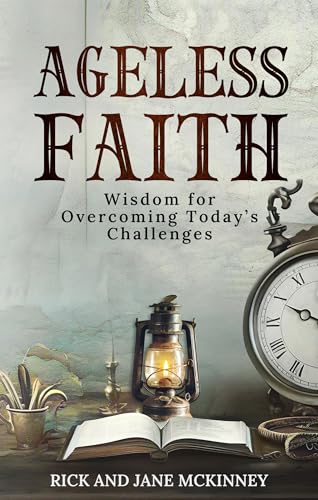Just in time for the upcoming elections…
In this wry political thriller, wildly successful businessman Melvin Shultz does his best sleazy advertising stunt ever — he sells a totally inept presidential candidate to an unsuspecting public. Now what?
“A wild ride!…one of the most original ideas…I’ve come across in a while…entertaining twists and turns…Vibrant, crisp and page-turning…”
Lust Takes The White House
by Benson Grayson
On a whim, Lust Cosmetics Company owner Melvin Shultz resorts to the same sleazy tactics he employed to make his firm an industry leader to manipulate the American presidential primaries. His goal is to see if he can put inept, woman-chasing ex-governor Robert “Buck” Porter into the White House.
Pursuing his 3 B’s — bribery, bullying and blackmail — Shultz is successful, but quickly realizes he has made a horrible mistake, and that Porter is so bad his administration threatens America’s future. Feeling responsible for foisting Porter on the country, Shultz must now decide whether to risk disgrace and probable imprisonment by again using the same ruthless tactics in an attempt to force Porter’s ouster from the Presidency.
5-star praise for Lust Takes the White House:
“Lots of high-powered excitement …the characters were fascinating…I hated for it to end. Who said politics was boring?”
“Amazing…fantastic book. Grayson has created a story that will immediately draw you in…and is definitely for the intelligent reader….so original and creative…”
an excerpt from
Lust Takes the White House
by Benson Grayson
The President leaned toward me, a big, toothy smile on his face. He looked just the way he did in his photos on the covers of the news magazines during the campaign. His press aide had once described it to me as the endearing sort of smile you might see on the face of a small child on Christmas Eve as he expectantly told his parents what presents he hoped Santa Claus would bring him. I disagreed. To me it was the type of smile you would see on the face of a used car salesman. Not one that was completely corrupt. Rather, one who had managed to convince himself that the junk heap he was about to sell to you at a ridiculously high price was really the finest new car offered at the lowest price ever available.
“Mr. Shultz,” he said. “I would be very pleased if you would accept the job of Director of the Central Intelligence Agency.”
I stared at him, amazed. I had never indicated to him that I wanted any government post, let alone that of Director of CIA. Initially, I had helped him win the presidency out of whim. Later, I realized that having someone in the White House who owed me a favor would be helpful in persuading the Federal Communications Commission to stop attacking my company’s advertising.
“I’m sorry, Buck,” I said. “I’m sure you can get someone else to do it. I’d rather go back to running my company.”
The incongruity of the President of the United States addressing me as “Mr. Shultz” while I called him “Buck” struck me. Of course, it accurately reflected our respective power positions. Without my help, he never would have become President. And I possessed enough detrimental information on him to be confident of being able to force him from office at any time I decided to do so. I wondered if he was shrewd enough to realize that fact.
I stood up. He got up from the sofa on which he was sitting and walked over to me, placing his arm around my shoulder. He was well over six feet in height, towering over me. Like many other big men, he had gone to fat. He was fortunate that his large frame helped to conceal his weight. Together with his thick head of curly grey hair, his height and grin had helped him win a majority of the women’s vote.
I didn’t know which I envied him more, his height or his hair. Those two features, added to his grin and his ability to tell anyone with whom he was speaking exactly what they wanted to hear had propelled him into the White House. That, plus my money, help and advice. Not that I would have changed places with him. While he was not stupid, he certainly was not bright. I wondered if I had not made a mistake, foisting him on the American people. The fact that he could be elected President bolstered my doubts over the soundness of the American political system.
As I looked up at Buck, I could not help thinking that if he wished, he could have crushed me with one hand. Not for the first time in dealing with him, I felt like the trainer of a huge bear.
“I’d better get back to my hotel,” I said. “I have to pick up Pergamon and dress for dinner.”
Pergamon and I were due to join the President and his wife and a few of his close friends who had helped him win the presidency. It was a dinner Pergamon had persuaded me to attend. I would have preferred to have spent the evening in our hotel room, watching a western on TV. I would have preferred even more to have gone back to our home at Watsonville. I had no interest either in putting up with what passed as conversation between Buck and his friends or in attending that evening’s inaugural balls. I reminded myself that it was my own fault. I could easily have avoided letting Pergamon meet Buck’s wife. I would certainly have done so if I had thought that she and Tammy would become fast friends.
Buck stepped back, extending his hand. The big grin was back on his face. It reflected one of his strongest assets, his unwillingness to accept defeat.
“Please think it over, Mr. Shultz,” he said.
“I will,” I said, shaking his hand. It was a polite lie. I had no intention of re-considering my refusal. Tomorrow, or the next day at the latest, Pergamon and I would be back in Watsonville and I would have resumed running my company.
He escorted me to the door. As I left, the Secret Service men standing in the corridors stared at me, watching my every move until the elevator arrived. I congratulated myself at not heeding Pergamon’s arguments that we take a suite in the same hotel as the President’s. I certainly would not want to put up with the intense security requirements the Secret Service was imposing on the hotel and on anyone who entered or left it.
When the elevator reached the lobby floor and the elevator door opened, I was struck by the luxury of the hotel lobby. I could understand the appeal this had for Pergamon. The hotel in which we were staying, a moderately-priced one about two miles away from that housing the President, was shabby compared to this one. However, I felt loyal to the friendly little hotel in which I always stayed during my trips to Washington. The staff there knew me and always welcomed me on my arrival, making me feel like a valued friend. And I enjoyed the delicious blueberry muffins served as part of the hotel’s complimentary breakfast buffet.
Passing through another cordon of Secret Servicemen in the lobby, I left the hotel. I looked at my watch. I had just enough time to walk the two miles to my hotel. Declining an offer by the hotel doorman to call a taxi, I strode out along 16th street in the direction of my hotel. As usual when I walked, I felt relaxed, enjoying the opportunity to be alone with my thoughts. Most of my best thinking was done during my walks, something Pergamon found inexplicable.
As I walked, I recalled my first meeting with Buck. It was a week before the New Hampshire presidential primary and I was in the state to meet with one of my distributors. I had been persistently disappointed in his sales of my company’s products and thought it best to deliver my warning to him personally. If he didn’t significantly increase sales, I informed him; I would find or establish another distributor. This was not the first warning. I had already passed this message to him via my sales manager. Unfortunately, the latter lacked my ability to be brutally frank. This time, I felt certain; the distributor could not mistake the meaning of my warning.
The hotel at which I was staying in New Hampshire was typical of those I always chose on my trips. It was small, friendly, and modestly priced. As I entered the lobby after having dinner nearby, I passed the hotel bar. It was about 7:00 p.m., a bit too early to go up to my room to watch television. I decided to enter the bar and have a beer. The bar was virtually empty. Just one man was sitting there, talking to the bar tender.
As I entered the bar, the man swung his stool around and addressed me.
“Don’t you agree?” he asked.
“Agree to what?” I answered. I thought he looked familiar.
“That what this country needs is a new education program, free college tuition for all students and payments to high school students to attend class.”
I considered and discarded the thought that the man was drunk or pulling my leg. He was apparently sober and quite sincere. I stared at him, wondering how anyone could be so foolish.
Then I recognized him. It was Robert “Buck” Porter, a one-term governor of Oklahoma and one of the candidates in the state’s Republican presidential primary. He had been reduced to driving a cab in Oklahoma City when he decided to enter the New Hampshire primary.
I recalled the press reports that he had based his decision on his need to get out of the state to avoid being forced by an aggrieved husband to testify in a lurid divorce case. Most of what I had heard about Porter suggested that the reports were correct.
In an unusual demonstration of political good judgment, New Hampshire’s Republican voters had largely dismissed Buck’s poorly financed and ineptly managed campaign. The latest polls showed him dead last among the seven candidates. He was even behind the TV comedian, who had entered the contest as a joke. It was no wonder that his limited funding had dried up. Unpaid, virtually all of his campaign workers had quit. As thing stood, he had less chance of winning the primary than a snowball in hell.
Behind his back, the bar tender was moving an extended finger in a circle next to his head, indicating that Buck was crazy.
“Buck,” I said, “You can’t win a Republican primary in New Hampshire talking about spending taxpayer money on free college tuition. The Republicans in this state think the government is already spending too much.”
“What do you think I should do?” he asked, in a pleading voice. It was hard to be contemptuous of him, because of the pathetic look on his face.
I motioned for him to leave the far and follow me to a booth at the far end of the room, where the bar tender couldn’t hear me.
“Buck,” I said. “If you want to win this primary, there is only one thing that would work.”
“What’s that?” he pleased, “Mr. …?”
“Shultz,” I introduced myself. “Melvin Shultz. From Watsonville, Illinois.”
“Look, Buck,” I continued. “All Americans hate taxes and New Hampshire Republicans hate taxes more than anyone else. What you have to do is promise that the first thing you will do after becoming President will be to immediately end the federal income tax.”
“How do I do that,” he asked.
“I don’t know,” I replied. “Frankly, I don’t think it can be done. But if you say it often enough and loud enough between now and the primary, you have a chance of winning.”
“But won’t people see through it? “ He asked.
I thought of stating to him the maxim that had made me rich, if you fool some of the people all the time and all of the people some of the time, that’s usually enough. Thinking it over, I decided he wasn’t smart enough or devious enough to accept the truth of that statement.
“No, Buck,” I assured him. “There are many ways for the government to replace the federal income tax. The only problem is to find the best one. It’s always possible to cut out waste and corruption.”
He thought it over for a moment and nodded in agreement. I was glad he didn’t realize that one person’s waste and corruption was another person’s priority for government spending.
“Why that’s wonderful,” he said. “I’ll use your suggestion as the basis for my campaign speeches tomorrow.”
“It won’t do you any good if you say that to a few people on the street,” I said. “Do you have any money left for television ads?”
“I don’t think so,” he admitted. “My campaign manager quit two days ago. We don’t have any up-to-date account of our finances.”
I quickly analyzed the situation in my mind. Then I came to a decision.
“Look, Buck,” I said. “If you agree to say exactly what I write for you, I’ll bankroll the rest of your campaign in New Hampshire, including a massive TV blitz.”
Buck grinned, the massive smile spreading across his face.
“You bet I will, Mr. Shultz,” he said. “And you’ll be glad you did. I’ll be the best President this country ever had. We’ll make a difference.”
I looked at him carefully. He really believed what he was saying. I decided it would be wiser for me not to reveal what I expected as the quid pro quo for my help in the unlikely event he actually did become President. It would be an interesting experiment to see if I could actually accomplish my goal. However, what was more important was the opportunity to gain more favorable treatment of my company’s advertising than it regularly received from the Interstate Commerce Commission. With Buck in the White House, the FCC would be instructed to steer clear of me. I would be free to go as far as I liked in my advertising on radio and TV. With even more blatant commercials for my Lust Cosmetics, I would have virtually every female in the country using them.
“All right, Buck, “I said, speaking as though to a small child. “You go upstairs to your room and wait for me. “I’ll make a few phone calls and arrange for the money. Then I’ll write your speech. It shouldn’t take me more than two hours, at most.”
I looked at my watch. It was almost 8 p.m.
“I’ll be at your room before 10. Remember, don’t tell anyone about this. If the other candidates in the primary get wind of what we’re planning, they’ll buy up the television time and we won’t be able to get your message across.”
Buck assured me he would follow my instructions to the letter. He gave me the number of the room and I realized we were on the same floor. He stood, smiled again and headed off to the elevator to go up to his room.
As he left, I thought for a minute of what I had gotten myself into. The amount of money I had committed myself to spend on his campaign was not small, although I could comfortably afford it. Moreover, I had no intention of raising it all, myself. The major disadvantage to helping Buck was really the fact that he was at best a mediocrity. As President, he would be a joke. Still the likelihood of that occurring, even with my help, was not great.
Walking to the phone booth to start making my calls, I realized I could just as easily have made the phone calls from my hotel room. However, using pay phones was a life-long habit it was hard to break. In my younger days, when money was short, I had always relied on pay phones to make long distance calls. I would inform the operator to notify me as soon as my pre-paid three minutes was up. That way, by hanging up immediately after receiving the operator’s warning, I had been successful in terminating calls before they became too expensive.
Feeling foolish at my unnecessary frugality, I started to leave the phone booth, and then sat down in it again. If I made the phone calls from my room, there would be a clear record. Given the fact that I was starting out to manipulate the New Hampshire primary, I would be far better off not leaving a clear record of my calls.
Checking my pocket, I found I did not have the necessary small coins. I gave the bar tender a five dollar bill and asked him to change it into quarters. He looked at me curiously as he gave me the coins, but said nothing.
Returning to the phone booth, I made the first call to Max Behrman, head of the agency that handled advertising for Lust Cosmetics. Max and I went back a long time together. I had gone to see him shortly after taking over Lust Cosmetics. My newspaper, which financed itself largely by doing commercial printing, had become the largest creditor of the cosmetics firm. Learning it was about to file for bankruptcy, I had acquired most of the remaining shares in Lust Cosmetics, paying off other creditors with pennies on the dollar. In part, I hoped that my taking over the company, I might be able to recover some of the money the firm owed me. In part, I did it to save the jobs of the four hundred employees who would have been laid off if the company had closed its doors.
When I first contacted Max, his company was a small one. I turned to it after the larger advertising agencies I contacted turned down the ad campaign I proposed, dismissing it as tasteless, crude and vulgar.
Max initially reacted the same way. The campaign I was proposing, he pointed out, was based on the slogan “add lust to your life.”
“You can’t say that in print,” he said, “let alone on radio or television. Why don’t you let me draw up something better?”
“Mr. Behrman,” I said, “sticking to tasteful advertising helped put Lust Cosmetics into bankruptcy. Do you recall their old advertising pitch? It was ‘use Lust Cosmetics, the brand your mother used to use.’ That didn’t do the trick. Nothing like that will do the trick.”
Max nodded in agreement. “I’m sure we can think up something better than that and still be tasteful,” he said.
I stood up to leave. “I’m sorry you can’t help me,” I said. “If I can’t get an ad agency to work with me to pull the company around, some four hundred people will lose their jobs. And most of them will not be able to get another one.”
Max shrugged. “All right, Mr. Shultz,” he said. “I’ll do it your way. But I don’t like it.”
Despite his initial reluctance, Max had done a good job. He had been correct in warning that many newspapers and radio and television stations in Illinois would refuse to carry our ads. However, enough did and we were able to fill the gaps with billboard ads. The adverse publicity the campaign inspired gave my company millions of dollars in free advertising. Within a few years, Lust became a billion dollar corporation.
As Lust’s sole owner, I became a millionaire many times over. Max had not done badly either. With my company as his largest client, his advertising agency had grown until it was one of the largest in the Middle West.
I rang Max’s home number. When his wife answered, she put him right on the phone.
“Max,” I said, “I apologize for calling you at home. I need your help on a crash project.”
“What’s the problem?” he asked. “Your current campaign seems to be going well.”
The campaign was based on the slogan “use lust in bed.” I smiled as I thought about it. It seemed that the more tasteless my advertising was, the better were the results.
“It’s something else,” I explained. “Do you know who Buck Porter is?”
“I can’t say that I do,” he answered.
“He was a one-term governor of Oklahoma a few years ago. He entered the New Hampshire Republican primary and is currently dead last, moving rapidly in reverse. With your help, we’re going to have him win the New Hampshire primary and then the presidency.”
There was silence on the phone. Then Max asked, “Are you serious?”
“I couldn’t be more so. But we have to work fast. There is less than a week before the primary. The first thing I want you to do is to buy up every available minute of advertising time available on every radio and television station in New Hampshire. If any of the nearby Massachusetts stations would be useful, buy up their time too. Then buy a full page of advertising every day in every daily newspaper in New Hampshire through to Election Day. Can you do it?”
“I can,” he said, “but it will be very expensive.”
“Don’t worry about the cost,” I said. ““I’ll send you funds to use as working capital. In a few days I will give you the names and addresses of the people to actually bill for the work. When you receive the funds you can repay me for my advance.”
“Another thing,” I went on. “The theme of the campaign is as soon as he is President; the first thing Buck Porter will do is end the federal income tax.”
“Are you sure, Mel?” he asked. “Do you really want to do this? You will have every reputable politician, economist and newspaper in the country, every talking head, calling Buck crazy.”
“You’re right,” I said. “But how many of them vote in the Republican primary in New Hampshire? The primary voters up here will love it. Do you remember the last time we disagreed over a campaign?”
I was referring to our discussion some three years before. I had laid out the new Lust Cosmetics campaign, based on the slogan Lust makes the world go round. Accompanying the slogan in our ads was the figure of a voluptuous naked Greek goddess.
Max had argued that the naked goddess would arouse too much adverse publicity. I had pointed out that the picture of the naked goddess was a replica of an ancient Greek statue, housed in one of the world’s leading museums. Anyone criticizing the picture would open himself to the charge that he was ignorant of art and culture. Max had reluctantly gone along with me. He had been perfectly correct in predicting that the criticism of the campaign would be unprecedented. However, it accomplished everything I had hoped for and more. It resulted in Lust Cosmetics becoming a member of the Fortune 500 companies and made me a billionaire.
“Now Max,” I went on. “For the newspaper ads I want a picture of Porter, looking presidential. He is wearing a white shirt, striped tie and suit, seated at a large desk. Behind him is a large window through which you can see the Capitol. Until you can get a more recent photo of him, retouch one of the official ones he used when he was Governor of Oklahoma.”
Max interrupted. “But you can’t see the Capital from White House.”
“You know that and I know that,” I answered. “But the voters in New Hampshire don’t. In any event, it doesn’t make any difference. We’re not selling reality. What counts is the image. On either side of the window,” I went on, “I want large American flags. Above Porter’s head, in large letters, I want a slogan in quotes saying ‘THE FIRST THING I WILL DO AS PRESIDENT IS END THE FEDERAL INCOME TAX.’ Under the picture, I want in smaller capital letters ‘STOP CONGRESS FROM GIVING YOUR DOLLARS TO THEIR MINK-COATED MISTRESSES.’”
“Mel,” said Max with something close to disgust in his voice, “Not only is that a non sequitur, it’s the lowest, most vulgar advertizing I have ever heard of.”
“You’re right, Max, I said. “I won’t try to deny that. But it just might work. I can’t think of anything else which would. Remember when I reminded you of the old quote attributed to P.T. Barnum, ‘Nobody ever went broke underestimating the intelligence of the American people.’ You thought I was joking. It took a long time for you to realize that Barnum was right, whether we like it or not. The only modification I would make now is to add, you also don’t go broke underestimating the good taste of the American people.”
“You’re the boss, Mel,” he said. He was obviously not happy about my planned campaign, but he would go along.
“OK,” I went on after a moment. “For the subsequent days I want the full-page newspaper ads to be basically the same, but with a different slogan each day. Use things like ‘STOP HAVING TO FEAR AN IRS AUDIT,’ ‘ THROW THE IRS INTO THE GARBAGE,’ ‘ STOP CONGRESS GIVING YOUR MONEY TO FOREIGNERS.’ “
“I’ve got all that,” Max said. He sounded a bit wore confident about his role.
“Also, get a crew to New Hampshire to have Porter do the radio and television ads. In the interim, have announcers make the pitch. You know, various voices saying ‘Had enough?’ ‘The first thing Porter will do as President will be to end the federal income tax.’ And try to have the actors sound like New Hampshire residents. Can you do all that?”
“I can,” he said. “And if you pull this off, they should fire every advertising professor in the country and have you teach their courses.”
“Thanks”, Max,” I said, and hung up. I no longer had any doubts Max would carry out my instructions in his usual skillful manner.
My next phone call was to my lawyer, Sol Sugarman. The timing of my call was fortunate. Sol had just been named partner in his firm, Quincy, Nixon and Faulkner. It was one of the most prestigious law firms in the country. I had been primarily responsible for Sol making partner. I had not told him of that fact, but he was smart enough to realize it and had thanked me most profusely.
I had started using Quincy, Nixon and Faulkner about three years earlier, when I decided to expand Lust Cosmetics’ operations overseas and had purchased cosmetics plants in Hong Kong, Poland, Ireland and Mexico. The Chicago law firm, Murphy and Chamberlain that had been handling my company’s legal affairs, did not have sufficient international expertise to handle my foreign operations.
My first step was to see Chamberlain, the managing partner and ask him for his suggestions. I had told him I was very happy with his firms’ work and that it would of course continue to handle Lust’s legal affairs in the U.S. The only change I had in mind was to hire a law firm to handle my company’s foreign operations. What I wanted, I explained, was the best law firm he could recommend for the purpose.
Chamberlain had looked puzzled. “What do you mean by best firm?” he asked. “There are many different criteria you can use to evaluate the different law firms.”
“Let me put it this way,” I explained. “What I want is a firm that believes if it’s worth winning, its worth it’s fighting dirty for.”
As soon as I said that, I realized I should never have been so blunt. In effect, I had burned my bridges with Murphy and Chamberlain. Chamberlain was a devout Episcopalian who had served as warden of his church several times. He also had no sense of humor. He stared at me as though I was a piece of excrement he had found on his shoe.
I regretted my choice of words for a minute, and then concluded it was just as well. Pat Kelly, the jovial red-faced Irishman who had handled my legal affairs at the firm until his death a few months before, had been an easy man to work with. After winning an important case for me, allowing me to use the slogan ‘Lust rules the world,’ he had laughingly told me that representing Lust Cosmetics had given him more fun than any other legal work he had ever performed. Chamberlain, since had taken over as managing partner, had been distinctly less helpful in handling my firm’s work.
“I should think,” He said coldly, “That the firm you want is Quincy, Nixon and Faulkner. They are an old line New York law firm that specializes in international work. I believe they also have a reputation for doing the sort of work you require. However, I doubt they would consider adding Lust Cosmetics as a client. Virtually of the firms they represent are much larger, members of the Fortune 500.”
“That’s all right,” I told him. “If you can set up a meeting for me with their managing partner, I think I can convince him to take me on as a client.”
“I’ll see what I can do,” he said. A few weeks later he called me. He told me in a cold tone that he had arranged for me to meet with Prescott Cooper, the managing partner of Quincy, Nixon and Faulkner at their Manhattan office the following week. I thanked him and hung up. Thinking about it, I concluded that Chamberlain had used whatever influence he could muster to arrange the appointment, in the hope that I would transfer all of Lust Cosmetics’ legal work away from his firm.
On the day set for my meeting with Cooper, I took an early morning flight to New York, checked into my hotel just off Times Square, and walked the several miles up to the officers of Quincy, Nixon and Faulkner. The firm was located in a large, modern building on Park Avenue. Reportedly, the building charged the highest rents for office space of any in Manhattan. The firm occupied six entire floors of the building.
When the elevator doors opened and I walked to the receptionist’s desk of the firm, I was struck by the impressive decor. It could be best described as in elegant good taste. Rich oriental carpets covered the parquet floors. The walls were paneled with fine, dark wood. Full length oil paintings in antique gold frames hung from the molding, many of them of the firm’s senior partners. Among the latter were at least two former senators and a former Attorney General.
The receptionist matched the décor. Seated behind a large mahogany desk she was beautifully dressed and one of the most attractive women I had ever seen. When she addressed me, I was not su













